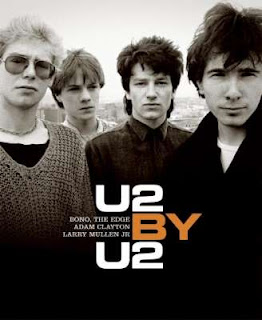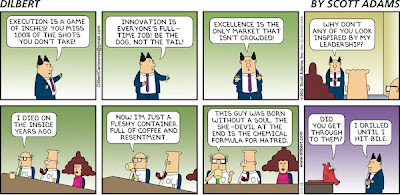As Smart As...
 I've been reading U2 By U2 for quite a while now in drips and drabs - and I'm still only up to the recording of Boy (a great debut album which everyone should own). But I'm also reading The Seuss, the Whole Seuss, and Nothing but the Seuss which is more biography than the U2 book (which is more, I guess, memoir/interview).
I've been reading U2 By U2 for quite a while now in drips and drabs - and I'm still only up to the recording of Boy (a great debut album which everyone should own). But I'm also reading The Seuss, the Whole Seuss, and Nothing but the Seuss which is more biography than the U2 book (which is more, I guess, memoir/interview).A couple things struck me this morning about U2 and Dr. Seuss. Both create a certain type of art, not appreciated by all, but excellent in its own way and both developed devoted followings very early. Interestingly, at least to me, neither Theodor Geisel nor the musicians in U2 were particularly good at their craft in the beginning - but they had passion and vision and drive - even in the face of rejections and
 missteps.
missteps.It seems to me that visionary and creative people are a special breed. Why is it that of the dozens of bands in the Dublin area in the mid-seventies that U2 rose to the top? Seriously, they admit that they weren't very adept musicians - Bono would change the lyrics every time he sand a song - at first they couldn't even finish a song. Even in the recording of Boy, Larry Mullen, Jr., couldn't play in time (that would be the drummer which is a bit of a drawback for any band, don't you think?). And Adam Clayton, according to The Edge, can play these really intricate and
 interesting bass lines - but can't clap a steady 4/4 measure. So, he says, he had to adjust his guitar playing to the rhythm section's...um... unorthodox style (or lack thereof). In their defense, Adam, Larry and Bono had to develop a drum/bass/vocal song or two because Edge kept breaking strings when they played (boy, can I relate!).
interesting bass lines - but can't clap a steady 4/4 measure. So, he says, he had to adjust his guitar playing to the rhythm section's...um... unorthodox style (or lack thereof). In their defense, Adam, Larry and Bono had to develop a drum/bass/vocal song or two because Edge kept breaking strings when they played (boy, can I relate!).The thing is, they weren't very good - but they knew they could be. Now you can argue that, as a band, U2 is not that good or innovative or...whatever. Know that it's going to fall on deaf ears here. I'm a big fan. Yeah, the first two albums (especially) are kind of rough - but rough in the way that a DaVinci sketch is rough - the form is there, the structure and the sensibility, but it needs to be worked and filled in.

Dr. Seuss did some decidedly unfunny illustrations and poetry in college. His first work was advertising and you can see the genesis of Horton and The Grinch and a lot of the characters who populated the books that we most remember Dr. Seuss for in those illustrations. But they are rough, they are mostly potential and very little delivery. But the potential is there. Others were doing weird cartoon advertisments in the 30s, why did Geisel rise to the top? Again, vision and drive.
I was reading...um...not sure which book it was (might have been Good to Great - in fact I think it was) and the author suggested that you hire innovative and creative people in your company - but you don't necessarily hire them for a particular position. You let their abilities and drives and creativity shape their job description. Now, of course, that has to be done within certain confines and with a great deal of accountability - but the idea is that creative and innovative people will be able to look at the company in unexpected and fresh ways.
Okay - so as the church we have these really talented and creative and driven people - and often we squelch the creativity and drive with "we've always done it this way" thinking. I know I do it sometimes. But the best ideas that I've ever been a part of have usually come out of conversations with people who have the ability to look at something from a completely different angle than I do.
At our staff retreat on Monday we were given a list of teamwork quotes and asked to choose the one that most spoke to us. The quote from our Staff Retreat that most spoke to me was, "None of us is as smart as all of us." And, I guess, ultimately that's what this post is about. Being as smart as all of us...


Comments